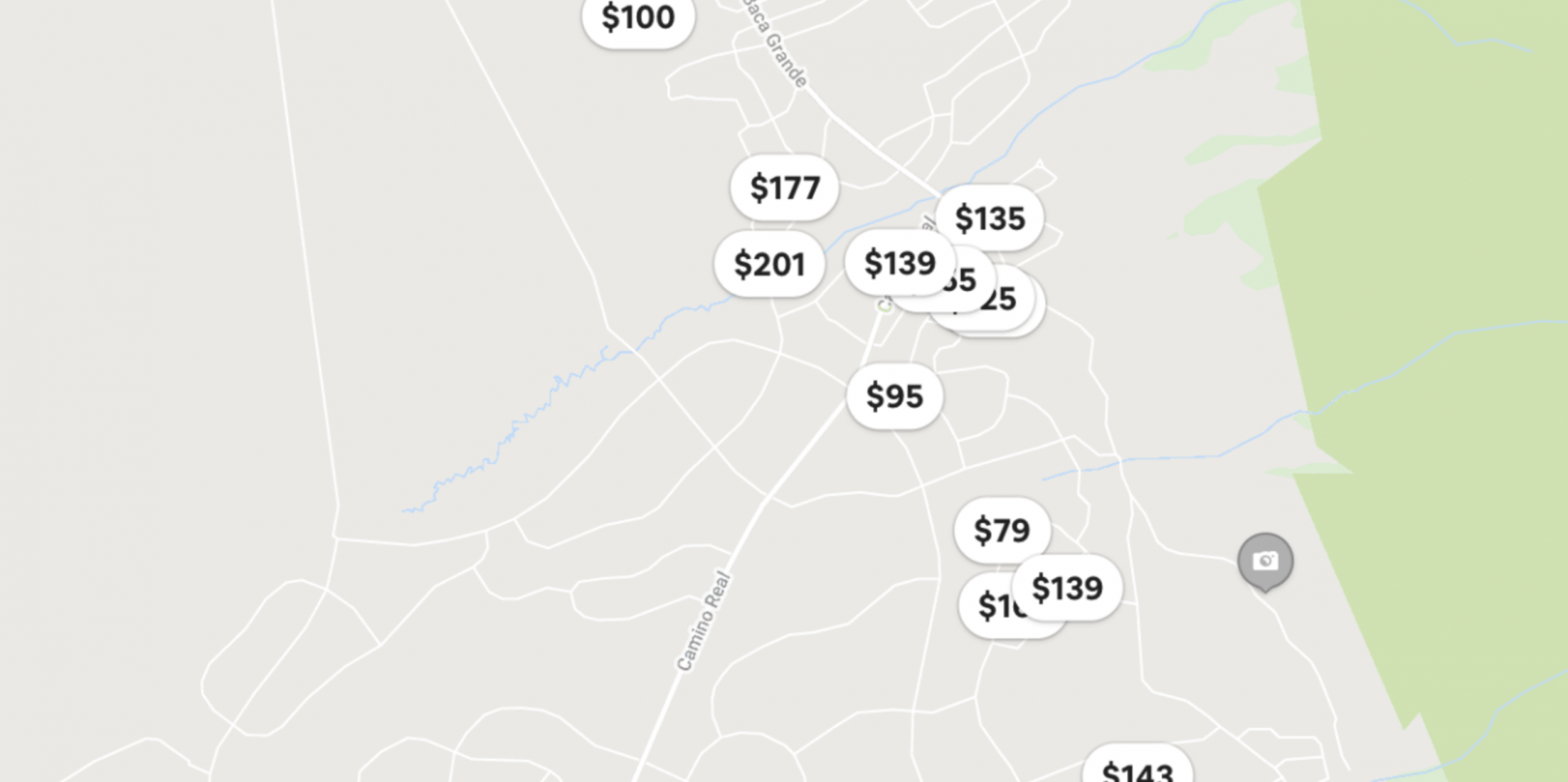Airbnb has been a popular online marketplace to find convenient, safe, and affordable lodging since 2008. Bookings are often more affordable and spacious than hotels and give travelers a taste of the local experience. Hosts also benefit from the added income and convenience of seasonally renting their space. However, communities across the globe are beginning to converse on the detrimental impacts that Airbnbs can have on a place.
A 2020 study published by the Social Science Research Network reported that for every 1% increase in Airbnb listings, rental prices on average rise by 0.018%. This study describes what is known as the “Airbnb Effect”: A rise in Airbnb listings is generally correlated with a drop in available long-term rentals, and a rise in rent. In turn, working class renters are often forced to seek housing elsewhere.
A rapid increase in Airbnb listings, paired with a decrease in long-term rentals; has left many Crestonians suspicious that the Airbnb Effect has reached our small mountain town. Ranging from entire houses, apartments, and bungalows to single rooms and guest houses, nearly 70 results appear for short-term vacation rentals on airbnb.com*. Of these, 50 results were for the entire accommodation, opposed to shared lodging. In contrast, long-term rentals are nearly non-existent, with popular listing sites such as zillow.com returning zero results. These google searches echo the concerns of many locals and prospective residents who are perplexed by the lack of available rentals.
Social networking has traditionally been the best way to find housing in Crestone. However, securing rentals has become a real stretch even for well-connected community members. When asked on a Facebook poll about Crestone’s housing shortage, several community members shared that they recently moved away due to a lack of available and affordable housing. Some of these individuals had lived in Crestone for over a decade. Another long-term resident is currently searching for a new rental in Crestone because his monthly rent suddenly increased by $150.00. A similar sentiment was shared by a local business owner who claims that renting in Crestone would require ¾ of his monthly income.
Locals and newcomers have expressed concern that the wealth gap in Crestone is being exacerbated by the conversion of long-term rentals into short-term lodging. One individual shared that while Crestone still feels like her home, she can no longer afford to pay rent here. Having worked as a cleaner for local Airbnbs, she found it strange to see so many houses available to tourists, yet not to residents. The abundance of Airbnbs contrasted with limited long-term rentals she feels is a direct attack on the working-class. Another poll participant explained that she was asked to move out of her previous accommodation specifically because the owners wanted to turn the property into an Airbnb.
Vivia Lawson, broker/owner of Sangre de Cristo Real Estate, has noticed that there has been an increase in clients who want to buy properties for use as short-term rentals. In many ways, it is hard to blame them. Airbnbs are profitable investments that can help create financial security and pay off mortgages. Airbnb bookings in Crestone average $119.00 a night*, which is valuable income in a region with limited economic opportunity. Airbnb reported that bookings generated over $200 million dollars for hosts living in rural areas in June 2020 alone. If hosts are committed to shopping in Crestone, the financial earnings from Airbnb could go towards stimulating our local economy. Employment opportunities for managers, cleaners, and maintenance workers are also potential benefits.
In addition, many Airbnb hosts enjoy being able to come and go from their properties at their leisure. Listing a space as an Airbnb is the obvious choice for those who want to have a second home in Crestone. Additionally, several hosts explained that short-term renting gives them the freedom to share their space with loved ones, as they can reserve the property for visiting friends and family and during work-related events.
Some homeowners expressed a preference for short-term listings because they feel the quality of their homes will be better maintained. One owner claimed that her Airbnb maintenance expenses have been minimal in comparison to her long-term rental properties. She recalls several instances when long-term tenants trashed her property. By listing with Airbnb, she feels her home will be better preserved for future use.
It is important to note that Airbnb itself is probably not the root of Crestone’s housing shortage. In fact, long-time residents of Crestone know that this place has always attracted seasonal residents, second homers, and those wanting to invest in rentals. Instead, it is likely that many factors contribute to the current housing problem. Namely, the real estate market has been unable to keep up with the rapid influx of newcomers to Saguache County.
Data from the US Census Bureau revealed that between 2010 and 2019, Saguache County’s population increased by 11.7%. As noted in a previous Eagle article (“Demand exceeds supply in Crestone real estate market”) there is little inventory left in Crestone. The few homes for sale are often priced over $350,000, leaving many residents forced to rent. Steep prices are especially concerning for our working-class population, as 25.4% of Saguache County residents are considered “persons in poverty” by the Census Bureau. Limited inventory, rapid population growth, and high rates of low-income households combine to make finding housing a real challenge.
No matter where you stand on the Airbnb issue, Crestone is experiencing an unprecedented housing shortage. This reflects the many changes that are occurring throughout Saguache County as more and more people call this valley home. As a community, we are beginning to see just how complex accommodating this new growth can be. Do we require permits or caps for short-term rentals? Do we advocate for low-income housing developments? Do we simply allow the rental market to rule itself? There may not be one answer to this housing crisis, but it will likely require cooperation and understanding from all sides.
*Airbnb information was collected on May 10, 2021 with the search field set for months June-October.


